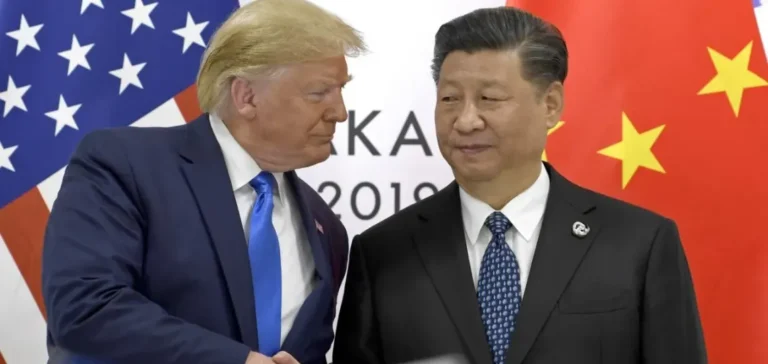The announcement by U.S. President Donald Trump, published on his Truth Social platform, marks a departure from recent American policy aimed at blocking oil trade between China and Iran. Until now, the United States had systematically targeted, through economic sanctions, companies involved in importing Iranian oil to economically weaken Tehran. This official authorization thus represents a major shift in American commercial strategy toward China, Iran’s primary economic and trade partner in the oil sector. Trump also expressed hope that this opening could benefit American crude oil exporters.
Immediate Market Reaction
A few hours after the announcement, international oil markets experienced a notable decline. The price of North Sea Brent crude, a major international benchmark, fell by more than 4%, dropping below $69 per barrel for August deliveries. West Texas Intermediate (WTI), the main American benchmark, similarly declined, approaching $65 per barrel for the same delivery period. Investors are reacting to a potential rapid increase in global crude supply, a direct possible consequence of this American decision.
Strategic Sino-Iranian Energy Partnership
For several years, China has partially circumvented American sanctions by purchasing Iranian oil through small private refineries independent from China’s state-owned oil enterprises. According to the specialized firm Kpler, these refineries, known as “teapot” refineries, currently absorb over 90% of Iranian oil exports, enabling Beijing to discreetly maintain its imports despite diplomatic pressures from the U.S. This American announcement could thus allow for increased formalization of Sino-Iranian oil exchanges, which have previously operated in a more opaque manner.
Economic Outlook of New Trade Dynamics
This decision could influence trade partnerships in the energy sector between the United States and China, potentially prompting the latter to also increase its imports of American crude oil, as the Trump administration hopes. For Iran, this could tangibly enhance revenues from its oil sales, given a Chinese market now explicitly accessible without increased risk of American sanctions. For global energy markets, this announcement raises questions regarding the medium-term evolution of oil prices, considering potential fluctuations in supply and demand generated by these new commercial dynamics.






















